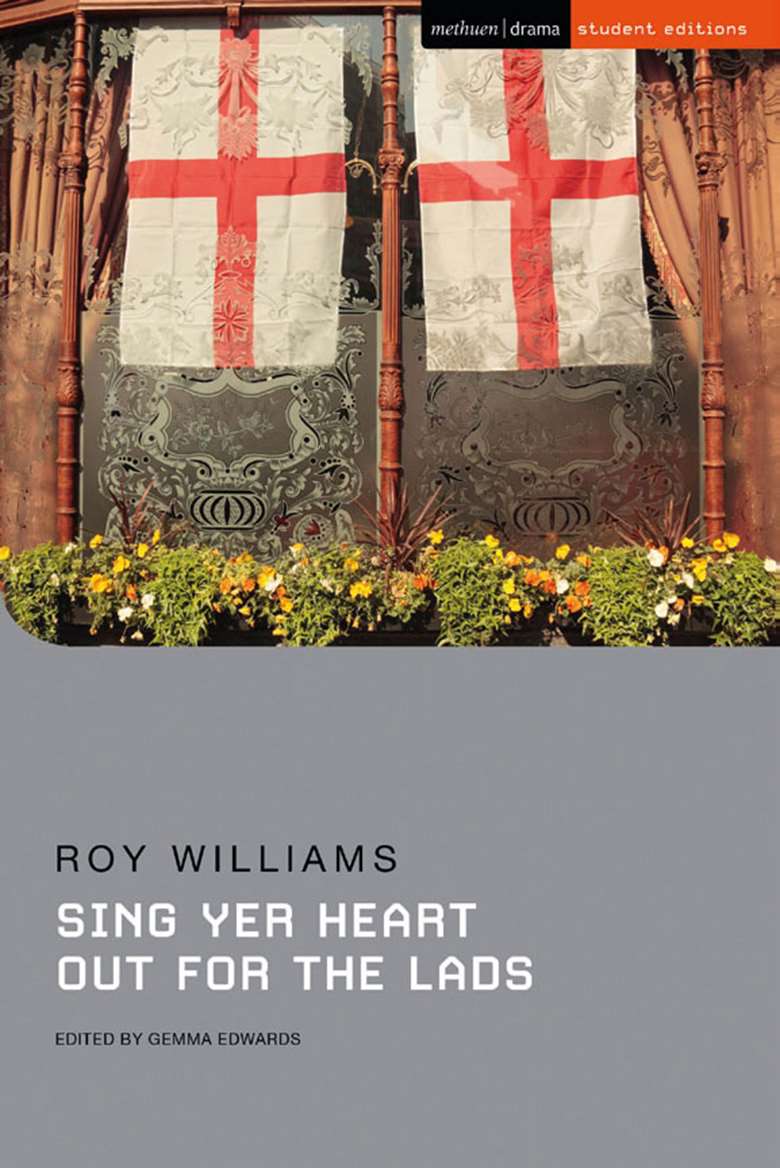Sing Yer Heart Out for the Lads
Lucy Miller
Thursday, December 1, 2022
'This is fascinating play to explore the theme of ethnic and cultural identity with an A Level group', says Lucy Miller.

Sing Yer Heart Out for the Lads is set in a London pub on the fateful evening of Saturday 7 October 2000, the night when England lost to Germany in the FIFA World Cup qualifying match. While football provides a tense backdrop full of febrile masculine energy, this is a play that comments on much wider themes of nationalism, racism, family relationships and generational divisions. The play premiered at the National Theatre in 2002, but 20 years on can it still speak as powerfully to our contemporary concerns?
The players of the pub's football team gather to watch the match. Landlady Gina's opening line ‘There had better not be any trouble’ sets the tone for the loutish, threatening atmosphere that builds throughout the play. Barry, the team's only Black player, has the St George's dragon emblazoned on both cheeks and is determined to be accepted as English. However, it's clear from the offset that he remains an outsider. His brother, Mark, is quick to temper as the racist comments that begin with references to Andy Cole ripple outwards into the pub setting and fuel the sense of racial separation. (White) Lawrie is clearly dangerous, while his police officer brother, Lee, is more conflicted. 40-something Alan ignites animosities further as he holds forth with his quasi-intellectualised reflections on Enoch Powell's 1968 ‘Rivers of Blood’ speech. Ultimately it is Gina's teenage son, Glen, who surprises us by committing the final act of horrific violence that brings the play to its shattering conclusion.
Two decades on this piece of gripping social realism still succeeds in painting a bleak picture of attitudes to race and Englishness, and perhaps seems even more relevant than ever when we consider the shockwaves left by Brexit and reaction to the Black Lives Matter movement.
A fascinating play to explore with an A Level group keen to discuss national, cultural and ethnic identity. However, a teacher would need to judge the sensitivities of the class carefully. There are some compelling relationships between mother and son, two sets of brothers in conflict, and differing generational perspectives. Overall though, this is more of a stimulus text for A Level.

